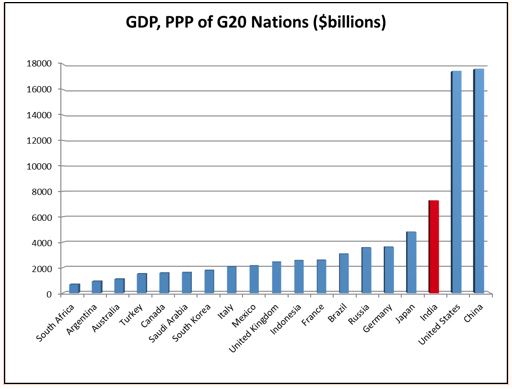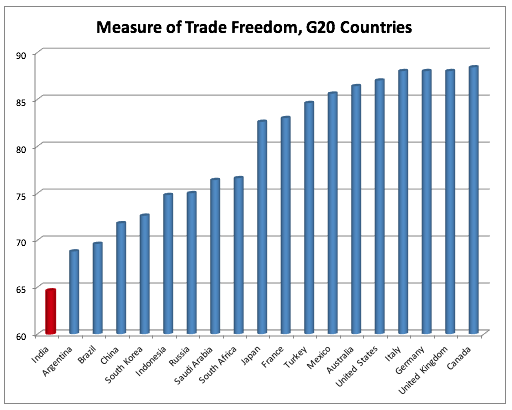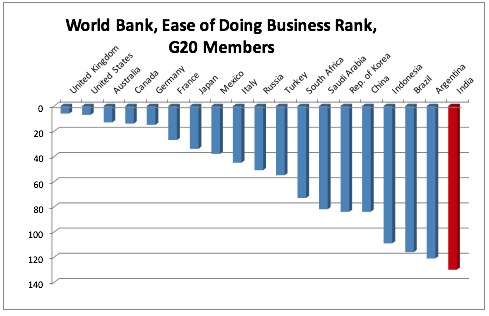India Maintains Weak Trade Ranking Among G20 Peers
G20 leaders met in Antalya, Turkey this week to discuss strengthening trade relations to boost economic growth and sustainable development.
The G20 meeting convened representatives from the top 20 economies, developing and developed alike. Together, they comprise two-thirds of the world population and 80 percent of the world’s GDP. Together, they seek to foster economic growth in the world economy and have typically supported trade growth and the elimination of trade restrictions.
As the third largest economy with 17.5 percent of the world’s population, India is an important G20 nation that can either positively influence or impede progress in economic and trade growth generally and in its own country.
Source: The Central Intelligence Agency, “The World Factbook,”
https://www.cia.gov/library/publications/the-world-factbook/rankorder/2001rank.html
Prime Minister Narendra Modi, who has sought to prove to investors that India is indeed “open for business,” has taken some small steps to increase foreign investment in India, evidenced by a recent announcement to reform Foreign Direct Investment (FDI) policies in up to 15 business sectors. However, many barriers remain which impede the progress necessary for India to attract more FDI. As indicated in the charts below, India continues to fall short of its market opening and doing business goals on recent global analyses of trade freedom and the World Bank’s Doing Business report.
Source: 2015 Index Economic Freedom, http://www.heritage.org/index/ranking
Despite its objective to improve its “doing business” ranking over the last year, India remains last amongst its fellow G20 countries in the World Bank’s analysis.
Source: World Bank, Doing Business 2016,
http://www.doingbusiness.org/~/media/GIAWB/Doing%20Business/Documents/Annual-Reports/English/DB16-Full-Report.pdf
Not only has India maintained industrial policy barriers from the last government, it has continued to increase barriers. For example, India recently raised tariffs on a number of information technology products, continues to make use of forced localization barriers, and relies on its own burdensome standards and testing for diverse number of products rather than implementing internationally accepted methodologies. Additionally, India’s failure to protect intellectual property across innovative industries undermines its ability to attract foreign and domestic investors.
India’s failure to comply with internationally recognized global trade standards not only blocks foreign investment and the growth of India’s own economy but also harms its fellow G20 members and all other developing nations.
If India and its Prime Minister are serious about opening India up for business, attracting investment and promoting economic growth, then concrete action is required in a number of areas to eliminate discriminatory and unfair trade and investment barriers and strengthen and adopt strong IP protections and international standards. Doing so would help level the playing field across all industries and promote India’s own domestic agenda.






No comments